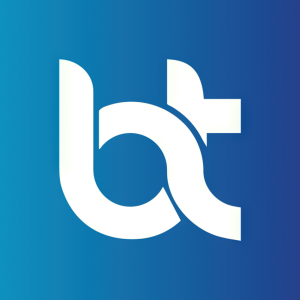BioXcel Therapeutics Launches “Boiling Point” Educational Campaign to Shed Light on the Importance of Prompt and Cooperative De-escalation in the Acute Treatment of Agitation Associated with Schizophrenia and Bipolar Disorders
BioXcel Therapeutics has launched the "Boiling Point" Campaign during Mental Health Awareness Month to educate healthcare professionals about the management of agitation related to schizophrenia and bipolar disorders. This initiative targets emergency medical providers by offering an interactive website with educational resources on identifying and managing agitation symptoms. Notably, agitation affects over 3 million individuals in the U.S. annually, with severe cases often resulting in coercive restraint. The campaign aims to promote early intervention and cooperative treatment strategies among healthcare providers.
- Launch of the 'Boiling Point' Campaign to enhance education on managing agitation.
- Interactive website provides healthcare professionals with vital resources.
- Addresses a significant healthcare issue affecting over 3 million people in the U.S. annually.
- Agitation symptoms often reach severe levels before intervention, indicating a gap in early identification.
- Severe agitation cases still involve coercive tactics for up to 30% of patients.
Insights
Analyzing...
The Campaign, launching during Mental Health Awareness Month, aims to educate healthcare providers on the various signs, symptoms, and levels of severity associated with agitation
Interactive website offers healthcare providers educational resources and guidance on methods of managing agitation to inform cooperative treatment approaches for this common, yet difficult-to-treat symptom
NEW HAVEN, Conn., April 29, 2021 (GLOBE NEWSWIRE) -- BioXcel Therapeutics, Inc. (“BioXcel” or the “Company”) (Nasdaq: BTAI), a clinical-stage biopharmaceutical company utilizing artificial intelligence approaches to develop transformative medicines in neuroscience and immuno-oncology, today announced the launch of its “Boiling Point” Campaign to educate emergency medical and psychiatric professionals on the full spectrum and severity of agitation symptoms and the importance of a prompt, non-invasive approach to care for patients with schizophrenia and bipolar disorders.
Agitation is a common and difficult-to-manage symptom associated with schizophrenia and bipolar disorders I and II1 that affects more than 3 million people in the US each year. These patients can experience, on average, a dozen agitation episodes annually that require treatment.2 When agitation reaches severe levels, coercive restraint and sedation are still used as intervention tactics for up to 30 percent of patients.3 These tactics can contribute to the worsening of symptoms, increasingly violent or aggressive behavior, and a potentially dangerous care environment for patients and healthcare providers alike.3 As such, prompt identification and cooperative de-escalation of the initial behavioral and mental signs of agitation are critical to preventing the emergence of aggressive or violent behavior.4
“Acute agitation symptoms may manifest with various signs and symptoms that can develop and change depending on the severity of a patient’s agitation. Unfortunately, healthcare providers, particularly in the emergency setting, usually identify agitation when it’s reached a severe level and they need to take acute measures to protect both patients and staff,” said Leslie Zun, MD, MBA, Chairman, Department of Emergency Medicine, Professor of Emergency Medicine, Rosalind Franklin University. “Educating emergency medical and psychiatric professionals on the importance of early identification and intervention around key symptoms – such as poor impulse control, tension, hostility, uncooperativeness, and excitement – will afford them the opportunity to intervene with verbal de-escalation techniques and medication in order to work collaboratively with patients before the agitation gets out of hand.”
The focal point for the Campaign, www.PartnersInCalm.com, was launched this Mental Health Awareness Month to arm healthcare providers with the knowledge to promptly identify the signs of agitation and learn about cooperative de-escalation techniques. Importantly, the site offers healthcare providers tools and resources on the observable behaviors of acute agitation as they evolve from mild to severe. They can also review clinical perspectives from experts on the unmet needs and best practices for noncoercive treatment in hopes of easing the burden of care for patients and healthcare providers.
“This campaign brings us one step closer to advancing the management of acute agitation associated with neuropsychiatric disorders by providing emergency room staff and other healthcare providers with education and relevant resources they need to adopt cooperative, patient-centric approaches for the treatment of agitation,” said Will Kane, Chief Commercial Officer of BioXcel.
For additional resources and campaign-related information, please visit www.PartnersInCalm.com.
BioXcel Therapeutics, Inc.
BioXcel Therapeutics, Inc. is a clinical-stage biopharmaceutical company utilizing artificial intelligence approaches to develop transformative medicines in neuroscience and immuno-oncology. BioXcel's drug re-innovation approach leverages existing approved drugs and/or clinically validated product candidates together with big data and proprietary machine learning algorithms to identify new therapeutic indices. BioXcel's two most advanced clinical development programs are BXCL501, an investigational, proprietary, orally dissolving thin film formulation of dexmedetomidine for the treatment of agitation and opioid withdrawal symptoms, and BXCL701, an investigational, orally administered, systemic innate immunity activator in development for the treatment of aggressive forms of prostate cancer and advanced solid tumors that are refractory or treatment naïve to checkpoint inhibitors. For more information, please visit www.bioxceltherapeutics.com.
Contact Information:
BioXcel Therapeutics, Inc.
www.bioxceltherapeutics.com
Media:
Diana Bardusk
diana.bardusk@hellommc.com
1.929.294.0526
1 Martinez-Raga et al. 1st International Experts’ Meeting on Agitation: Conclusions Regarding the Current and Ideal Management Paradigm of Agitation. Front. Psychiatry (2018) 9:54. doi: 10.3389/fpsyt.2018.00054.
2 Roberts et al. Characterizing the experience of agitation in patients with bipolar disorder and schizophrenia. BMC Psychiatry (2018) 18:104. https://doi.org/10.1186/s12888-018-1673-3.
3 Gaynes et al. Preventing and De-escalating Aggressive Behavior Among Adult Psychiatric Patients: A Systematic Review of the Evidence. PS in Advance (2017) 68(8), 819-831. https://doi.org/10.1176/appi.ps.201600314.
4 Richmond et al. Verbal De-escalation of the Agitated Patient: Consensus Statement of the American Association for Emergency Psychiatry Project BETA De-escalation Workgroup. The western journal of emergency medicine (2012) 13(1): 17-25. doi: 10.5811/westjem.2011.9.6864.







